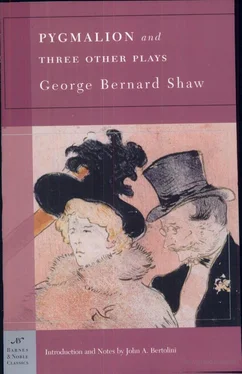EVIL IN THE THRONE OF GOOD
This distress of the gentle was so acute that those who shared it in civil life, without having to shed blood with their own hands, or witness destruction with their own eyes, hardly care to obtrude their own woes. Nevertheless, even when sitting at home in safety, it was not easy for those who had to write and speak about the war to throw away their highest conscience, and deliberately work to a standard of inevitable evil instead of to the ideal of life more abundant. I can answer for at least one person who found the change from the wisdom of Jesus and St. Francis to the morals of Richard III and the madness of Don Quixote extremely irksome. But that change had to be made; and we are all the worse for it, except those for whom it was not really a change at all, but only a relief from hypocrisy.
Think, too, of those who, though they had neither to write nor to fight, and had no children of their own to lose, yet knew the inestimable loss to the world of four years of the life of a generation wasted on destruction. Hardly one of the epoch-making works of the human mind might not have been aborted or destroyed by taking their authors away from their natural work for four critical years. Not only were Shakespeares and Platos being killed outright; but many of the best harvests of the survivors had to be sown in the barren soil of the trenches. And this was no mere British consideration. To the truly civilized man, to the good European, the slaughter of the German youth was as disastrous as the slaughter of the English. Fools exulted in “German losses.” They were our losses as well. Imagine exulting in the death of Beethoven because Bill Sykes [261] Brutal criminal in Charles Dickens’s novel Oliver Twist (1837-1838).
dealt him his death blow!
STRAINING AT THE GNAT AND SWALLOWING THE CAMEL
But most people could not comprehend these sorrows. There was a frivolous exultation in death for its own sake, which was at bottom an inability to realize that the deaths were real deaths and not stage ones. Again and again, when an air raider dropped a bomb which tore a child and its mother limb from limb, the people who saw it, though they had been reading with great cheerfulness of thousands of such happenings day after day in their newspapers, suddenly burst into furious imprecations on “the Huns” as murderers, and shrieked for savage and satisfying vengeance. At such moments it became clear that the deaths they had not seen meant no more to them than the mimic death of the cinema screen. Sometimes it was not necessary that death should be actually witnessed : it had only to take place under circumstances of sufficient novelty and proximity to bring it home almost as sensationally and effectively as if it had been actually visible.
For example, in the spring of 1915 there was an appalling slaughter of our young soldiers at Neuve Chapelle and at the Gallipoli landing. I will not go so far as to say that our civilians were delighted to have such exciting news to read at breakfast. But I cannot pretend that I noticed either in the papers, or in general intercourse, any feeling beyond the usual one that the cinema show at the front was going splendidly, and that our boys were the bravest of the brave. Suddenly there came the news that an Atlantic liner, the Lusitania, had been torpedoed, and that several well-known first-class passengers, including a famous theatrical manager and the author of a popular farce, [262] The manager is American theatrical producer Charles Frohman (1860-1915); the author is Charles Klein, who co-wrote the 1910 farce Potash and Perlmutter.
had been drowned, among others. The others included Sir Hugh Lane; [263] Irish art dealer (1875-1915); director of the National Gallery of Ireland.
but as he had only laid the country under great obligations in the sphere of the fine arts, no great stress was laid on that loss.
Immediately an amazing frenzy swept through the country. Men who up to that time had kept their heads now lost them utterly. “Killing saloon passengers! What next?” was the essence of the whole agitation; but it is far too trivial a phrase to convey the faintest notion of the rage which possessed us. To me, with my mind full of the hideous cost of Neuve Chapelle, Ypres, and the Gallipoli landing, the fuss about the Lusitania seemed almost a heartless impertinence, though I was well acquainted personally with the three best-known victims, and understood, better perhaps than most people, the misfortune of the death of Lane. I even found a grim satisfaction, very intelligible to all soldiers, in the fact that the civilians who found the war such splendid British sport should get a sharp taste of what it was to the actual combatants. I expressed my impatience very freely, and found that my very straightforward and natural feeling in the matter was received as a monstrous and heartless paradox. When I asked those who gaped at me whether they had anything to say about the holocaust of Festubert, they gaped wider than before, having totally forgotten it, or rather, having never realized it. They were not heartless any more than I was; but the big catastrophe was too big for them to grasp, and the little one had been just the right size for them. I was not surprised. Have I not seen a public body for just the same reason pass a vote for £30,000 without a word, and then spend three special meetings, prolonged into the night, over an item of seven shillings for refreshments?
LITTLE MINDS AND BIG BATTLES
Nobody will be able to understand the vagaries of public feeling during the war unless they bear constantly in mind that the war in its entire magnitude did not exist for the average civilian. He could not conceive even a battle, much less a campaign. To the suburbs the war was nothing but a suburban squabble. To the miner and navvy it was only a series of bayonet fights between German champions and English ones. The enormity of it was quite beyond most of us. Its episodes had to be reduced to the dimensions of a railway accident or a shipwreck before it could produce any effect on our minds at all. To us the ridiculous bombardments of Scar-borough and Ramsgate were colossal tragedies, and the battle of Jutland a mere ballad. The words “after thorough artillery preparation” in the news from the front meant nothing to us; but when our seaside trippers learned that an elderly gentleman at breakfast in a week-end marine hotel had been interrupted by a bomb dropping into his egg-cup, their wrath and horror knew no bounds. They declared that this would put a new spirit into the army, and had no suspicion that the soldiers in the trenches roared with laughter over it for days, and told each other that it would do the blighters at home good to have a taste of what the army was up against. Sometimes the smallness of view was pathetic. A man would work at home regardless of the call “to make the world safe for democracy.” [264] Paraphrase of a line in President Woodrow Wilson’s April 2, 1917, address to Congress upon the United States entering World War I.
His brother would be killed at the front. Immediately he would throw up his work and take up the war as a family blood feud against the Germans. Sometimes it was comic. A wounded man, entitled to his discharge, would return to the trenches with a grim determination to find the Hun who had wounded him and pay him out for it.
It is impossible to estimate what proportion of us, in khaki or out of it, grasped the war and its political antecedents as a whole in the light of any philosophy of history or knowledge of what war is. I doubt whether it was as high as our proportion of higher mathematicians. But there can be no doubt that it was prodigiously outnumbered by the comparatively ignorant and childish. Remember that these people had to be stimulated to make the sacrifices demanded by the war, and that this could not be done by appeals to a knowledge which they did not possess, and a comprehension of which they were incapable. When the armistice at last set me free to tell the truth about the war at the following general election, a soldier said to a candidate whom I was supporting, “If I had known all that in 1914, they would never have got me into khaki.” And that, of course, was precisely why it had been necessary to stuff him with a romance that any diplomatist would have laughed at. Thus the natural confusion of ignorance was increased by a deliberately propagated confusion of nursery bogey stories and melodramatic nonsense, which at last overreached itself and made it impossible to stop the war before we had not only achieved the triumph of vanquishing the German army and thereby overthrowing its militarist monarchy, but made the very serious mistake of ruining the centre of Europe, a thing that no sane European State could afford to do.
Читать дальше












